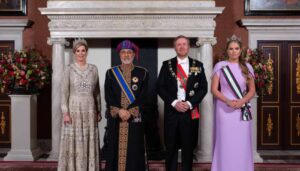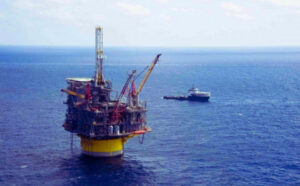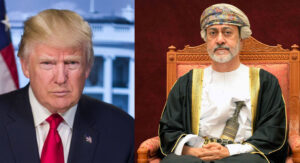Oman and Netherlands Ink Landmark Hydrogen Agreements

Amsterdam, The Gulf Observer: In a historic move during His Majesty Sultan Haitham bin Tarik’s state visit to the Kingdom of the Netherlands, the Sultanate of Oman and the Kingdom of the Netherlands signed three major agreements on Tuesday aimed at strengthening bilateral cooperation in clean energy and infrastructure development.
The centerpiece of the visit was the Joint Development Agreement (JDA) to establish the world’s first commercial export corridor for liquefied hydrogen, linking Oman, the Netherlands, and Germany. The corridor will facilitate hydrogen exports from Port of Duqm to Port of Amsterdam, and onward to strategic hubs in Germany, notably the Port of Duisburg.
Oman was represented in the JDA by Hydrogen Oman (Hydrom), OQ Group, and the Port of Duqm, marking a major step forward in Oman’s ambition to become a global hub for green hydrogen production and export.
Hydrom will coordinate the alignment of production with Oman’s national hydrogen strategy and ensure integration with the sector’s overarching infrastructure. Meanwhile, OQ Group will lead the development of the liquefied hydrogen terminal and related storage and export facilities at Duqm, a location strategically poised to support large-scale energy projects through the Special Economic Zone at Duqm (SEZAD).
“This international cooperation is a strategic step in Oman’s journey toward building a green hydrogen-based economy,” said Eng. Salim bin Nasser Al Aufi, Oman’s Minister of Energy and Minerals and Chairman of Hydrom. “The agreement reaffirms Oman’s confident progress and showcases the trust Hydrom has garnered in forming impactful global partnerships.”
On the European end, the corridor will include regasification terminals at the Port of Amsterdam. These will serve as gateways for distributing hydrogen to industrial centers in the Netherlands and Germany through a network of pipelines, railways, and waterways.
Speaking at the ceremony, Sophie Hermans, Dutch Minister of Climate and Green Growth, praised the agreements as “a key milestone in Oman-Netherlands cooperation,” emphasizing that the project aligns with Europe’s long-term strategy to diversify energy sources and enhance energy security.
She also lauded Oman’s regulatory framework as one of the world’s most attractive for green hydrogen investments, citing that 22 international companies are already active in green hydrogen development in Oman’s Al Wusta and Dhofar governorates.
Two additional agreements were also signed:
- A partnership to study the development of pipeline infrastructure for transporting hydrogen and carbon dioxide.
- A strategic partnership between OQ and Dutch logistics company Royal Vopak, aimed at transforming Duqm into a leading integrated hub for hydrocarbons, chemicals, and low-carbon products.
Ashraf Hamad Al Mamari, Group CEO of OQ, said the collaboration with Vopak “will drive Oman’s emergence as a globally competitive energy hub and support the country’s energy transition goals.”
Dick Richelle, CEO of Royal Vopak, echoed this sentiment, calling the agreement “a significant milestone” and expressing enthusiasm for supporting Oman Vision 2040 by bringing world-class infrastructure development expertise to Duqm.
Signed by eleven entities from Oman, the Netherlands, and Germany, the agreements signal a new era of energy cooperation and place Oman at the forefront of global green hydrogen innovation. The partnerships are expected to generate sustainable economic opportunities, attract foreign investment, and advance the global transition to cleaner energy.


